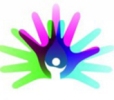
February 28 is Rare Disease Day
If you have never heard of Aagenaes syndrome or Zygomycosis, it isn't surprising -- they are rare diseases. In the United States, a disease is considered rare if it is believed to affect fewer than 200,000 Americans. Some rare diseases, such as sickle cell anemia, hemophilia, Tourette syndrome, and Lou Gehrig's disease (ALS) are better known.
What may be equally off the radar of most Americans is that Feb. 28 -- next Sunday -- officially is Rare Disease Day, a day designed to raise awareness of the need for more research and better access to diagnosis, treatment, and other services. The event sponsored by the National Organization for Rare Disorders (NORD), which says rare diseases affect 25 million to 30 million Americans.
"People with rare diseases remain a medically underserved population around the world," says NORD President and CEO Peter L. Saltonstall. "Studies have shown that it typically takes many years to get an accurate diagnosis for a rare disease."
The National Institutes of Health estimates there are, in total, between 6,000 to 7,000 rare diseases. With so many different types of diseases, even though each one is rare, the impact on the American population as a whole is significant. NORD notes that because the number of people affected by each rare disease is small, there often is a lengthy delay in receiving an accurate diagnosis. Patients have difficulty finding medical experts who are familiar with their condition, and there likely is no effective treatment available to change the course of the disease.
"Little or no research is being done on many of these diseases, and more than 15 million Americans have rare diseases for which there is no treatment," Saltonstall says.
In addition to the challenges they face accessing medical care, individuals with rare diseases run into difficulty obtaining social or financial services because those providing assistance are not familiar with the disease. For example, if the disease is not included on the Social Security Administration's Listing of Impairments, beneficiaries are commonly denied SSDI benefits and must go through a lengthy appeal process. Unfortunately, NORD notes, applicants have died while waiting for a decision.
In an effort to avoid such situations, SSA rolled out its Compassionate Allowances initiative in October 2008 to "quickly identify diseases and other medical conditions that invariably qualify under the Listing of Impairments based on minimal objective medical information," according to the SSA's Web site. The agency initially provided a list of 50 conditions -- 25 rare diseases and 25 cancers -- used to help identify eligible disabilities and make faster decisions for disability benefits through the SSDI and Supplemental Security Income (SSI) programs. Effective March 1, 2010, SSA is adding 38 more conditions to the list.
"The compassionate allowance list of impairments helps disability examiners to understand the effects of certain rare diseases, which can be quite debilitating, functionally limiting, and worthy of a finding of disabled," said Edward Swierczek, senior claims representative for Allsup, a nationwide provider of Social Security disability, Medicare and worker's compensation services for individuals, employers, and insurance carriers. The Belleville, Ill.-based firm is one of more than 300 patient organizations, medical societies, government agencies, and companies in support of the rare disease community and says it applauds SSA's decision to expand its Compassionate Allowance program in an effort to provide benefits more quickly to eligible applicants.
Like other Rare Disease Day supporters, Allsup has successfully helped individuals diagnosed with rare diseases navigate the SSDI process. Two of those individuals -- Alvin Ridl and Patricia Gutierrez -- share their stories about their challenges and successes on the company's Web site, www.Allsup.com. Knowing that individuals with rare diseases and their families often feel isolated and forgotten, the company encourages everyone to remember them on Rare Disease Day. For more information about the day, visit www.rarediseaseday.us.